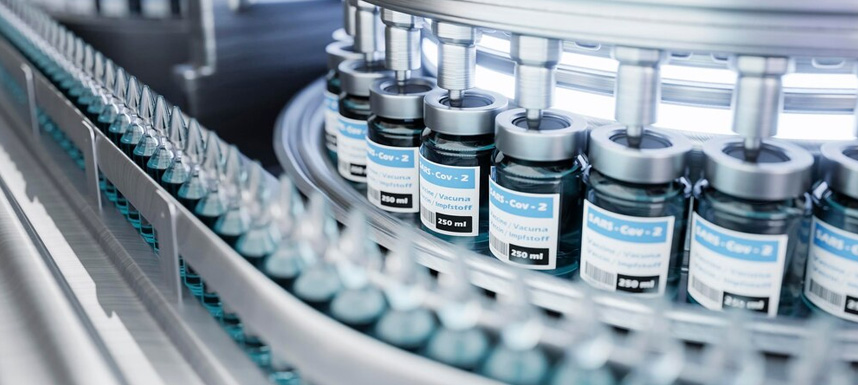
Pharmaceuticals Industries Balancing Innovation With Environmental Responsibility Through Wastewater Treatment
The pharmaceutical industry stands as a beacon of innovation, continually pushing the boundaries of medical science to improve human health and well-being. However, alongside the benefits of medical advancement come environmental challenges, particularly concerning wastewater management. The production processes in pharmaceutical manufacturing facilities generate complex and often hazardous wastewater streams that demand careful treatment to mitigate their environmental impact. This article's relationship between pharmaceutical industries, wastewater treatment, and the evolving regulatory landscape highlights the importance of sustainable practices for the industry's long-term viability.
The Complexity of Pharmaceutical Wastewater:
Pharmaceutical manufacturing processes involve many chemical reactions and synthesis steps, generating diverse wastewater streams with varying compositions and contaminants. These wastewaters often contain active pharmaceutical ingredients (APIs), solvents, heavy metals, and other substances of environmental concern. Unlike municipal wastewater, pharmaceutical wastewater poses unique challenges due to biologically active compounds that may resist treatment methods and persist in the environment, potentially causing ecological harm and contributing to antimicrobial resistance.
Environmental Concerns and Regulatory Pressure:
The environmental impact of pharmaceutical wastewater has garnered increased attention from regulators, environmental organizations, and the public in recent years. Studies have revealed the presence of pharmaceutical residues in surface waters, groundwater, and even drinking water supplies, raising concerns about their potential effects on aquatic ecosystems and human health. In response, regulatory agencies worldwide have introduced stringent guidelines and effluent limits for pharmaceutical manufacturers, mandating the implementation of advanced wastewater treatment technologies to minimize pollution and protect environmental quality.
Advancements in Wastewater Treatment Technologies:
Meeting regulatory requirements while ensuring efficient and cost-effective wastewater treatment poses significant challenges for pharmaceutical companies. Fortunately, advancements in wastewater treatment technologies offer promising solutions for addressing these challenges. Advanced oxidation processes (AOPs), such as ozone treatment and ultraviolet (UV) irradiation, can effectively degrade pharmaceutical compounds and remove them from wastewater. Additionally, membrane filtration technologies, including reverse osmosis and nanofiltration, enable the separation and concentration of contaminants for safe disposal or reuse, reducing the environmental footprint of pharmaceutical manufacturing operations.
Integration of Wastewater Treatment into Pharmaceutical Operations:
Pharmaceutical companies must integrate wastewater treatment into their operations to achieve sustainable wastewater management. This entails implementing comprehensive pollution prevention measures, optimizing production processes to minimize waste generation, and investing in state-of-the-art treatment infrastructure. Moreover, fostering a culture of environmental stewardship and compliance within the organization is essential for ensuring ongoing commitment to sustainable practices and regulatory compliance.
Collaboration and Knowledge Sharing:
Addressing the environmental challenges associated with pharmaceutical wastewater requires collaboration among industry stakeholders, regulatory authorities, academia, and technology providers. By sharing best practices, research findings, and innovative technologies, stakeholders can collectively advance the state of the art in pharmaceutical wastewater treatment and drive continuous improvement in environmental performance. Furthermore, partnerships between pharmaceutical companies and wastewater treatment specialists can facilitate the development and deployment of solutions.
The Path Forward:
As the pharmaceutical industry continues to expand and innovate, the importance of responsible wastewater management cannot be overstated. By embracing sustainable practices and investing in wastewater treatment technologies, pharmaceutical companies can minimize their environmental footprint, mitigate regulatory risks, and enhance their reputation as responsible corporate citizens. Moreover, by prioritizing environmental stewardship alongside innovation, the industry can contribute to broader efforts to address global environmental challenges and build a more sustainable future for future generations.
Conclusion
In conclusion, the pharmaceutical industry must navigate the delicate balance between innovation and environmental responsibility, with wastewater treatment playing a pivotal role in achieving this balance. By adopting advanced treatment technologies, integrating wastewater management into operations, and fostering collaboration and knowledge sharing, pharmaceutical companies can mitigate their environmental impact and contribute to a healthier planet for all.
Get in Touch
You will find yourself working in a true partnership that results in an incredible experience, and an end product that is the best.
Call us on
+91-8882354793
Email us
contact@agileventures.in
